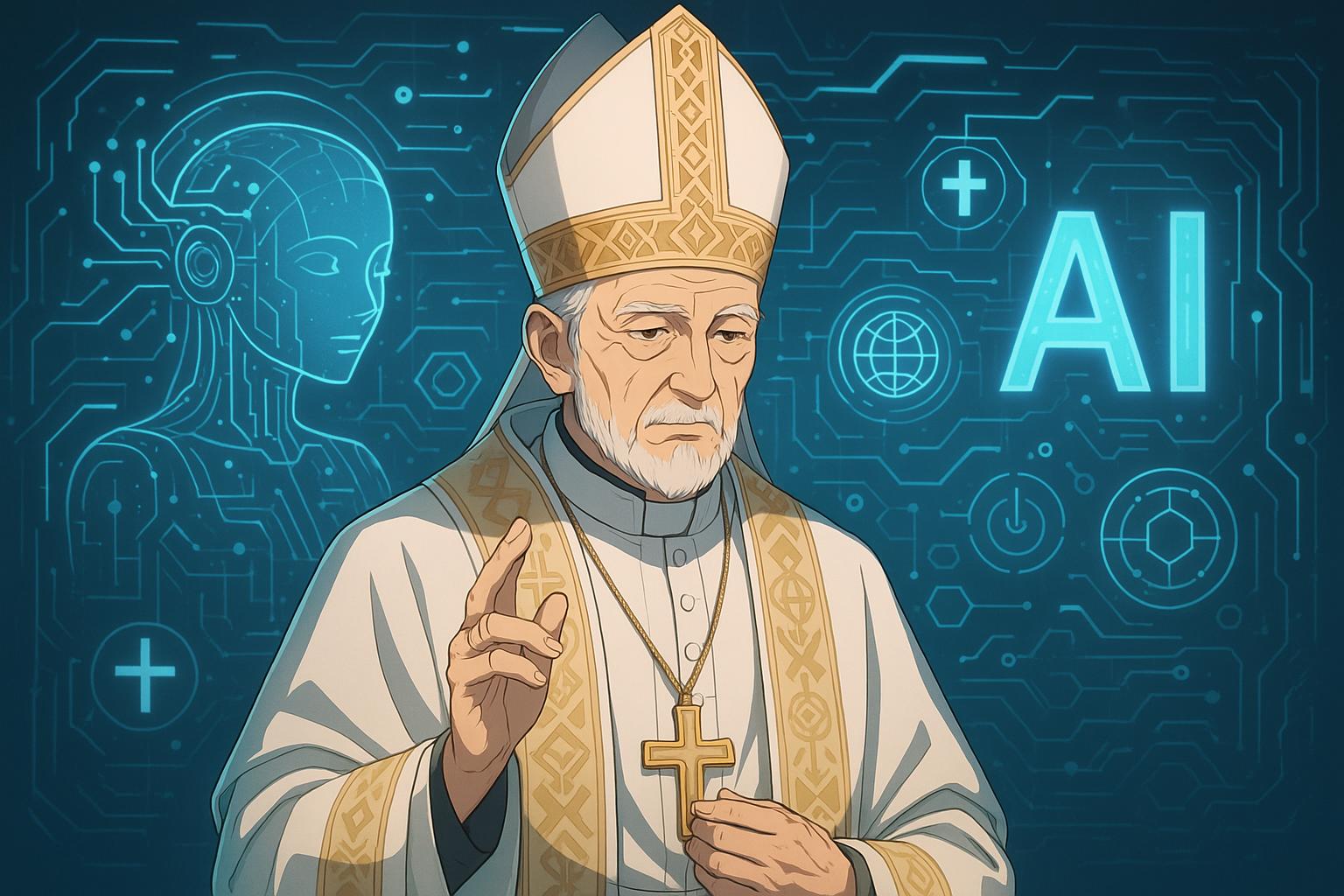In today’s digital landscape, the intersection of technology and faith presents both profound opportunities and significant challenges. At the forefront of this phenomena is the alarming rise of artificial intelligence (AI) and deepfake technology, which are reshaping perceptions of truth and trust in unprecedented ways. As society becomes increasingly reliant on digital platforms for communication, finance, and even spiritual engagement, the potential for both enriching experiences and dangerous misunderstandings looms large.
AI has heralded a new era of technological advancement, introducing tools that enhance our lives through efficiency and connectivity. Yet, the rapid emergence of deepfakes—highly realistic but fraudulent audio and visual content—has created a crisis of authenticity. Incidents have already demonstrated the catastrophic impact of these technologies; for example, a finance professional was swindled out of $25 million after being misled by a deepfake video that convincingly portrayed a senior executive. Such breaches of trust extend beyond finance into the realm of public discourse, where misinformation can sway elections and shift public opinion.
This ethical dilemma has not gone unnoticed by leaders within the Church. Recently elected Pope Leo XIV, acknowledging the complexities posed by AI, emphasised the need for responsibility and ethical stewardship. During his inaugural address, he stated, “Artificial intelligence, with its immense potential, requires responsibility and discernment so that it can be used for the good of all and benefit all humanity.” This call reflects the Church's deep-seated commitment to human dignity, reinforcing that technology should empower rather than diminish the personal worth of individuals.
The sheer scale of our digital interconnectedness highlights an ironic truth: while over 5.35 billion people are online, a genuine human connection often feels elusive. The deluge of information can lead to mental health challenges, social fragmentation, and a breakdown in authentic communication. In this context, the Church is advocating for a reconceptualization of dialogue, as seen in the upcoming 59th World Communications Day on June 1, 2025, which encourages participants to “share with gentleness the hope that is in your hearts.” This theme challenges individuals to transform hostility into constructive conversations, where truth is communicated with compassion rather than accusation.
Furthermore, the ethical implications of AI and deepfake technology are particularly concerning. These tools are adept at distorting reality, undermining trust not just in the media but within faith communities as well. The Church posits that technology, without a moral compass, can easily lead to technocratic temptations, wherein efficiency is revered over empathy and solidarity. Additionally, there is a pressing risk that AI could exacerbate existing social inequalities, leaving vulnerable populations even more marginalised—a demographic that the Church has always sought to uplift.
Pope Francis has voiced similar concerns, urging global leaders to implement stringent oversight mechanisms regarding AI. Striking a balance between innovation and ethical responsibility, he warned against allowing machines to dictate human fate, asserting that we must retain control over technology to preserve human dignity. His views were reinforced during discussions at influential forums, including recent G7 summits, where he advocated for a robust ethical framework governing the use of AI.
In light of these developments, the Church is called to not merely resist the tide of technology but to embrace it as a tool for fostering deeper encounters with the divine. Initiatives like the “AI Jesus,” which provided a digital confessional in Switzerland using AI technology, have garnered both intrigue and criticism. This experiment challenged participants to reflect on their relationships with both machines and the sacred, exemplifying the complex interface between faith and technology.
As we navigate this new terrain, the imperative for discernment and digital wisdom becomes ever more pressing. The proliferation of deepfake technologies and the ubiquitous nature of misinformation necessitate a vigilant community that champions truth and ethical engagement. Pope Leo XIV’s recent remarks underscore the Church's resolve to rise to these contemporary challenges not with timidity but with hope and courage. By fostering an environment conducive to meaningful dialogue, grounded in principles of charity and compassion, the Church can indeed model a more humanised approach to communication in the digital age.
Now, more than ever, the Church's calling is to offer guidance amidst the cacophony of modern life—inviting believers and seekers alike to reclaim their connection to truth, community, and ultimately, faith.
##Reference Map:
- Paragraph 1 – [1], [2]
- Paragraph 2 – [1], [4]
- Paragraph 3 – [2], [6]
- Paragraph 4 – [3], [7]
- Paragraph 5 – [1], [5]
- Paragraph 6 – [6], [4]
- Paragraph 7 – [2], [3]
- Paragraph 8 – [1], [6]
Source: Noah Wire Services
